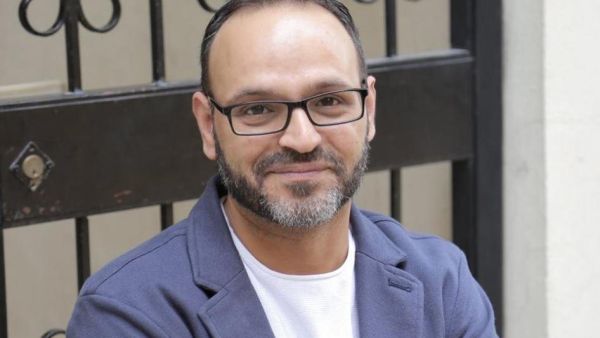Ziad Itani, an actor released earlier this year after being arrested and falsely accused of collaborating with Israel, provided details of his detention and alleged torture by State Security to Human Rights Watch, in an account published Monday.
Itani was arrested last November, on charges that were later revealed to have allegedly been cooked up by Maj. Suzan Hajj Hobeiche, the then-head of the Internal Security Forces Cyber Crimes Bureau. He was released in March after spending more than 100 days in detention, while Hobeiche and a hacker who allegedly fabricated evidence in the case were arrested. Their cases are ongoing.
Human Rights Watch said it spoke to Itani in March, but withheld publishing the account upon his request.
A State Security spokesperson could not immediately be reached for comment on the report.
Itani told the international rights group that he had possibly been held in an informal detention center where men dressed in civilian clothes repeatedly beat him, tied him in stress positions, hung him by his wrists, kicked him in the face, threatened to rape him, and threatened his family with physical violence and legal charges.
Itani told Human Rights Watch that the interrogators, which he said he suspected were from State Security, taunted him by describing how the accusations against him were damaging his reputation. Details of the case were leaked just one day after Itani’s arrest.
Itani described the leak as “the biggest form of torture I’ve seen in my life. They took my phone as I sat in my cell and read the news and my friends’ Facebook posts about me. I lost hope. ... The psychological torture and words they used were more horrible than the physical torture,” the statement quoted him as saying.
“Lebanese authorities should investigate how details of the investigation leaked to the media,” Human Rights Watch said.
Itani said he told Military Investigative Judge Riad Abu Ghaida about the torture at his first opportunity, showing him marks on his wrists. Itani said Abu Ghaida noted the claims and ordered a doctor to examine Itani, however no such examination took place.
Human Rights Watch said it reviewed Abu Ghaida’s report and did not find any mention of possible torture “or any indication that the judge had ordered an investigation into the allegation.”
Itani detailed how he had been forced into a vehicle at around noon on Nov. 23, by a man who identified himself as “the state.” Itani said that the man hit him in the face and chest and blindfolded him.
Itani said he was taken to “a room prepared for torture,” painted entirely black with metal hooks along the wall. Human Rights Watch quoted him as saying that six men in civilian clothing were in the room, one of whom accused Itani of “talking to the Israelis” and punched him in the face. Itani said the man threatened to physically harm Itani’s daughter, and to include his wife and sister in the investigation.
Physical torture began after he refused to sign a confession at around 6 p.m. on Nov. 26, the statement said. Itani said four men tied him down in a stress position on the floor, and one of them hit him with a cable.
“Itani said the men then punched him in the face, chest, and groin and kicked him, and that one man pulled his pants off and hit his genitals. He said the men then strapped his wrists to a bar in the doorway so that his feet barely touched the ground and left him in that position for hours,” the statement said.
He was taken down eventually and then kicked in the face and stepped on, resulting in bleeding. Human Rights Watch said it saw a doctor’s report documenting injuries in Itani’s mouth and seven of his teeth. Itani recalled one of the men talking on the phone, saying “we can’t hand him over yet, there are marks on him,” Human Rights Watch’s report said.
Then, Itani said one man who appeared to be in charge “told him they would insert a rod into his anus if he didn’t sign, and pointed at another man saying, ‘This one will ride you, and we don’t care because you are a traitor.’” Human Rights Watch said Itani then agreed to sign a confession.
Itani said that, on Nov. 28, the interrogators took him to Beirut’s Military Tribunal and handed him over to the military police. He was held in solitary confinement there for 54 days. “There was no doctor who saw me, my body was all blue and I was spitting blood,” Itani said. “I couldn’t speak properly.”
This article has been adapted from its original source.








